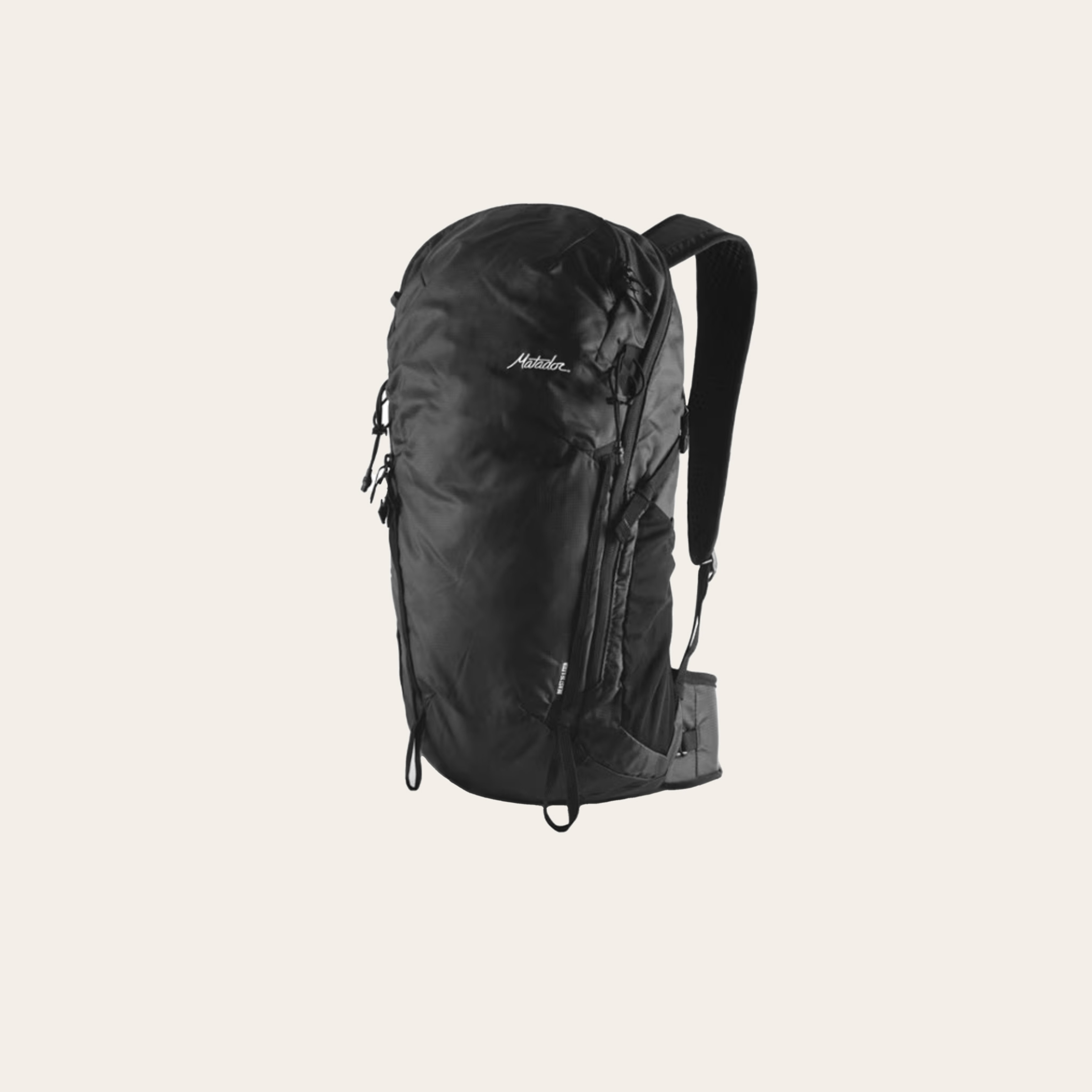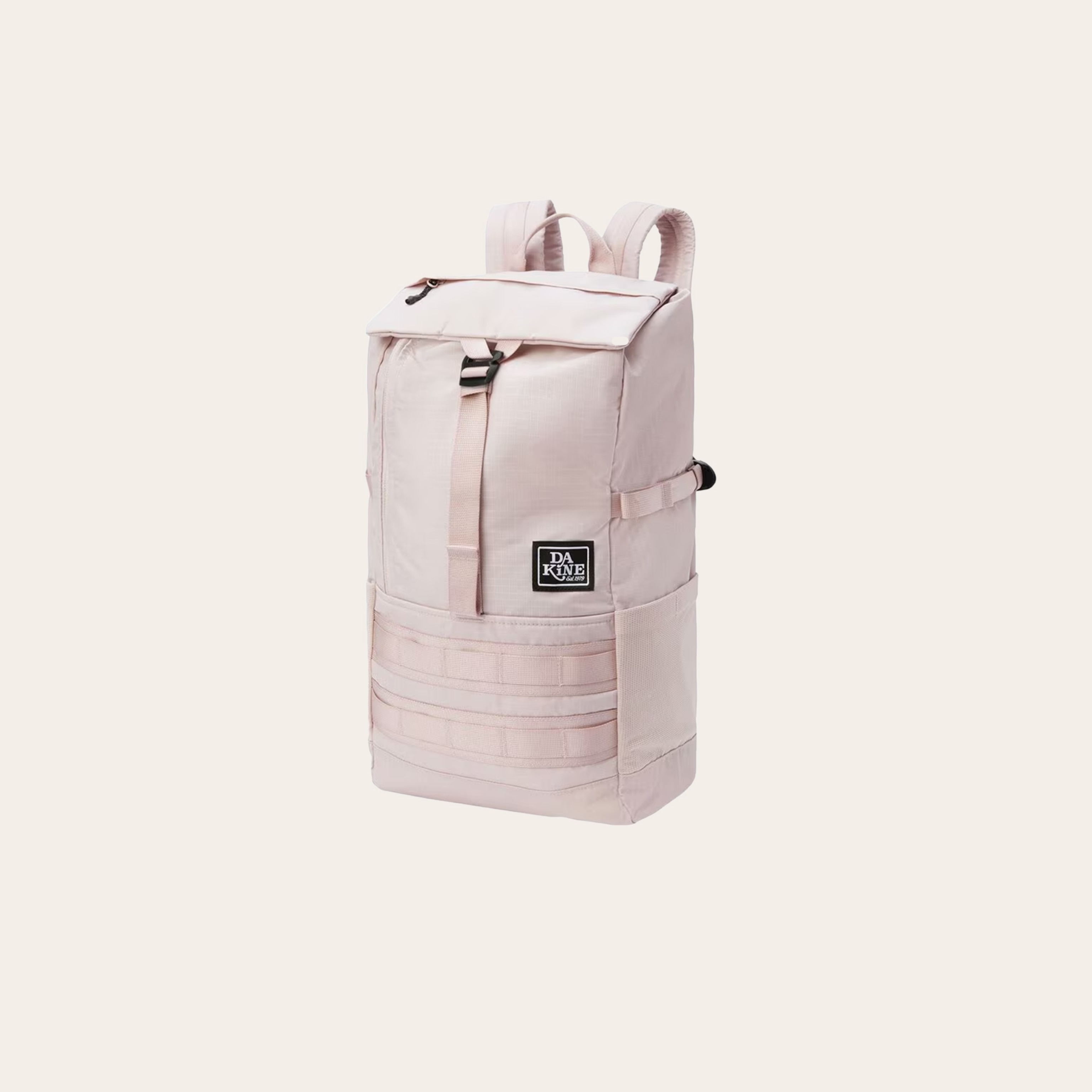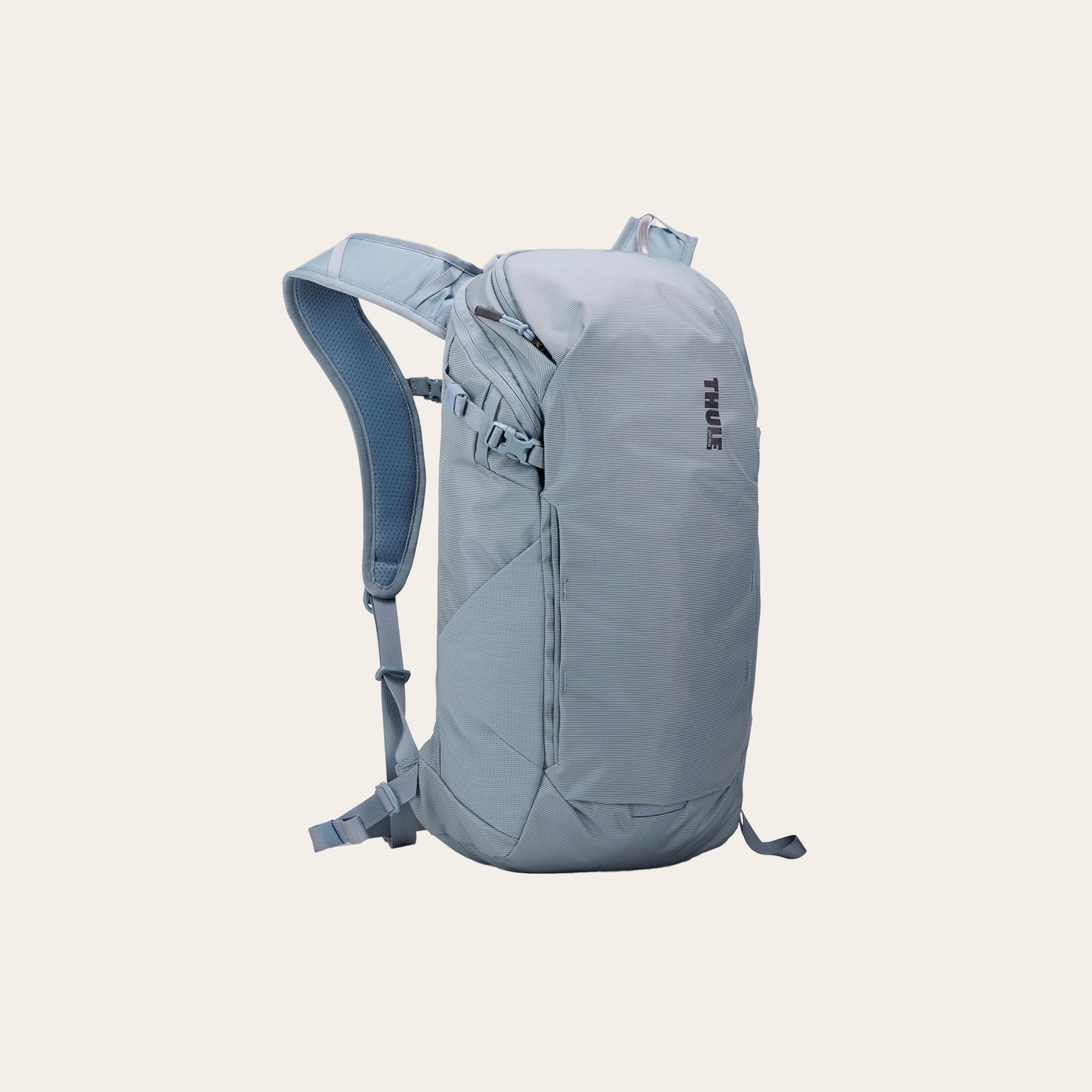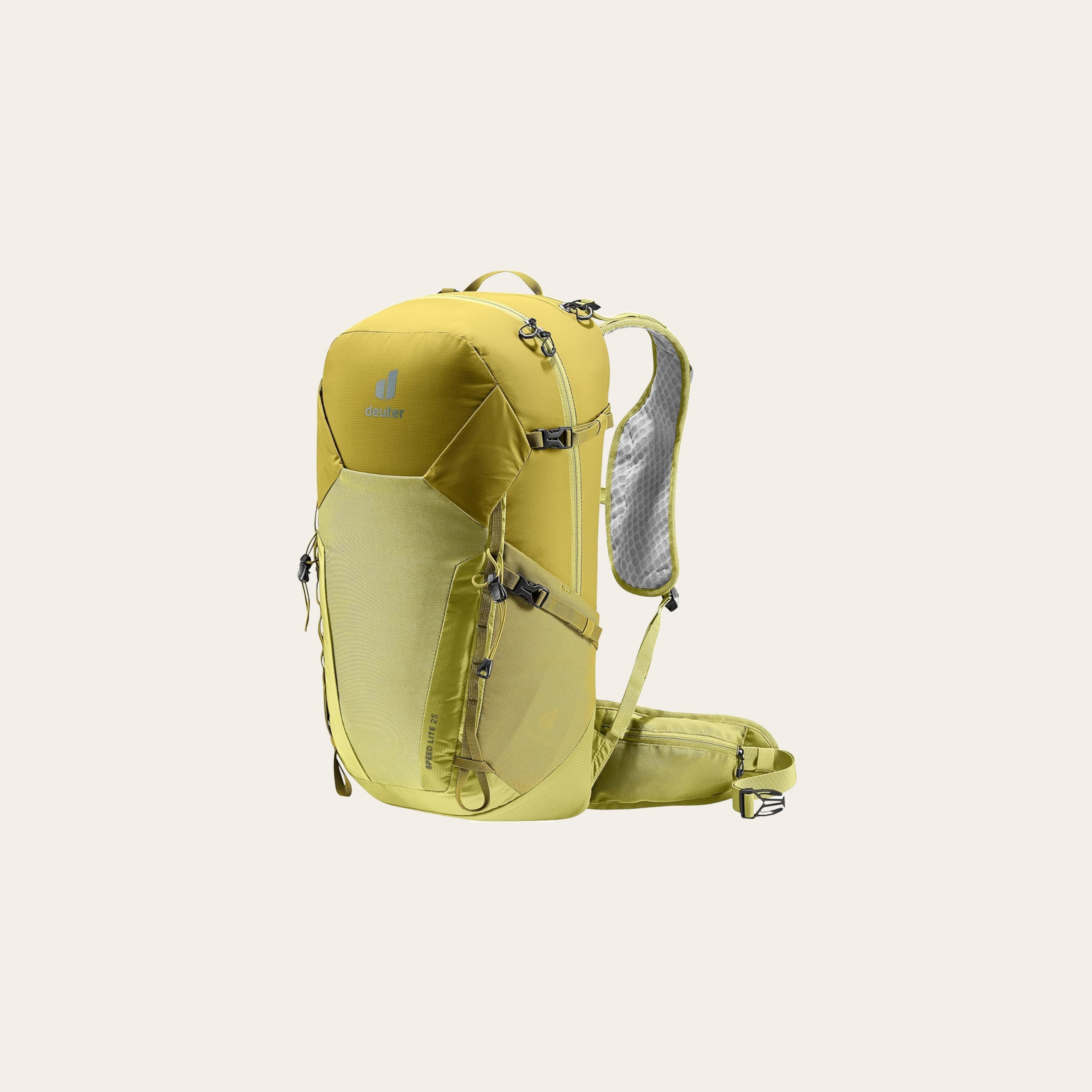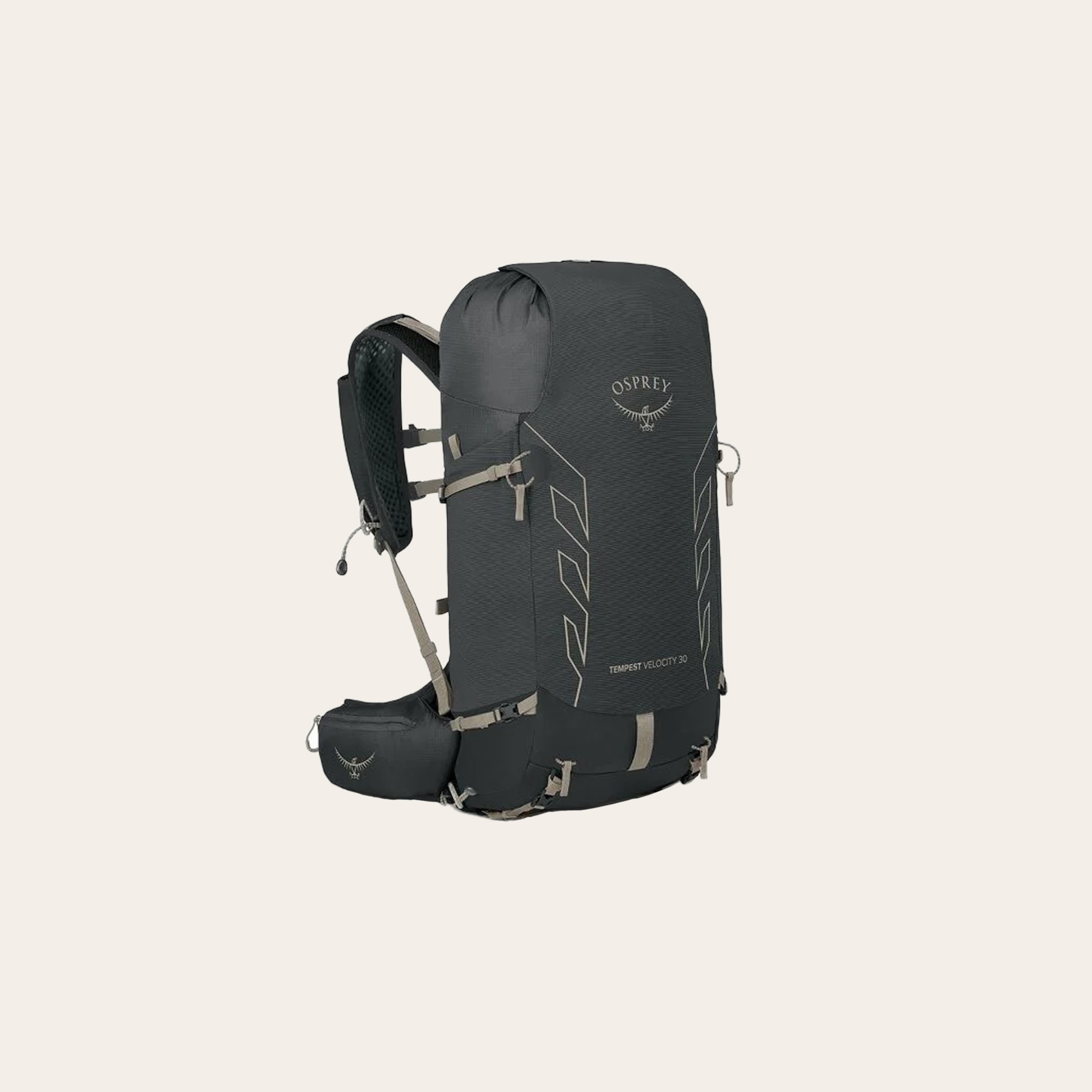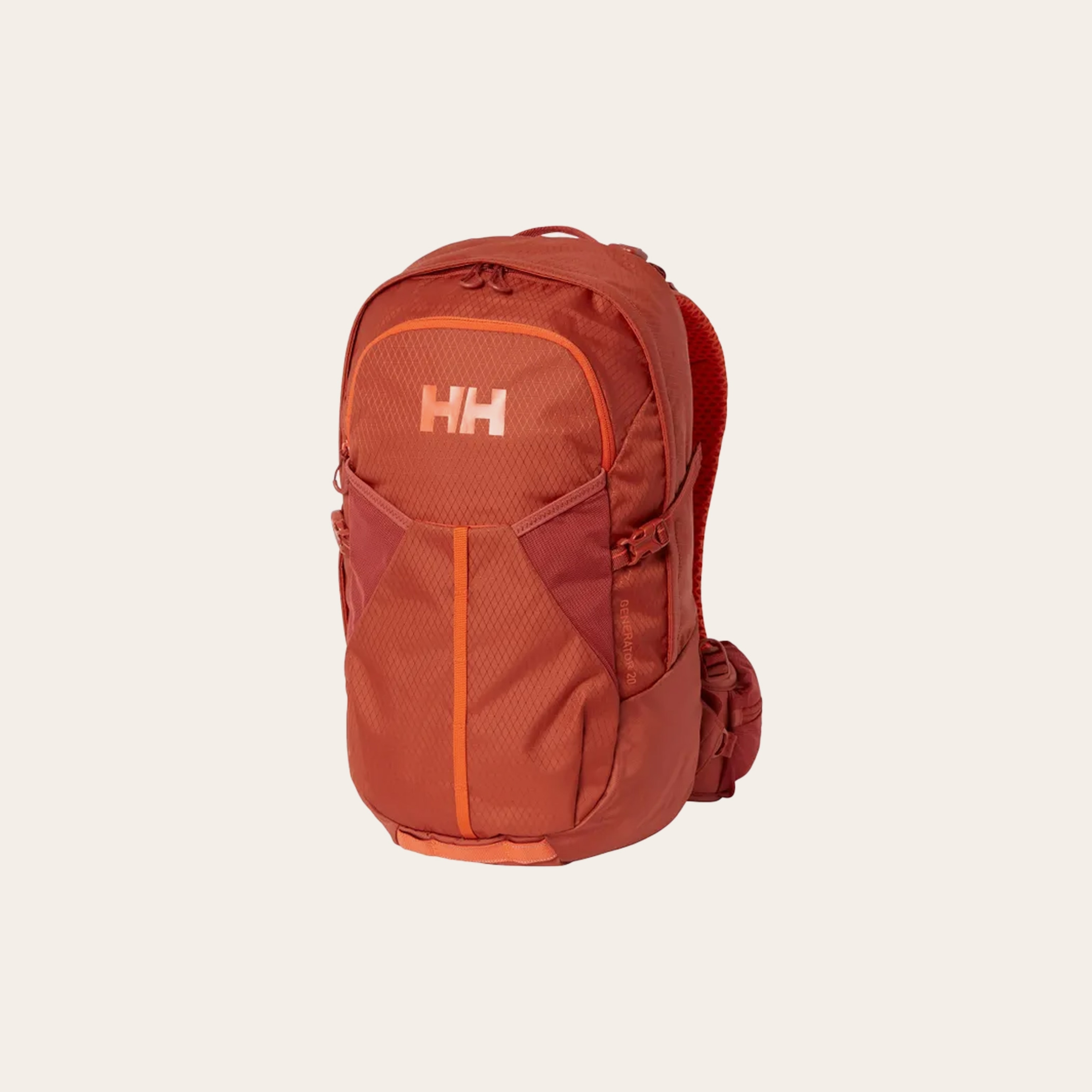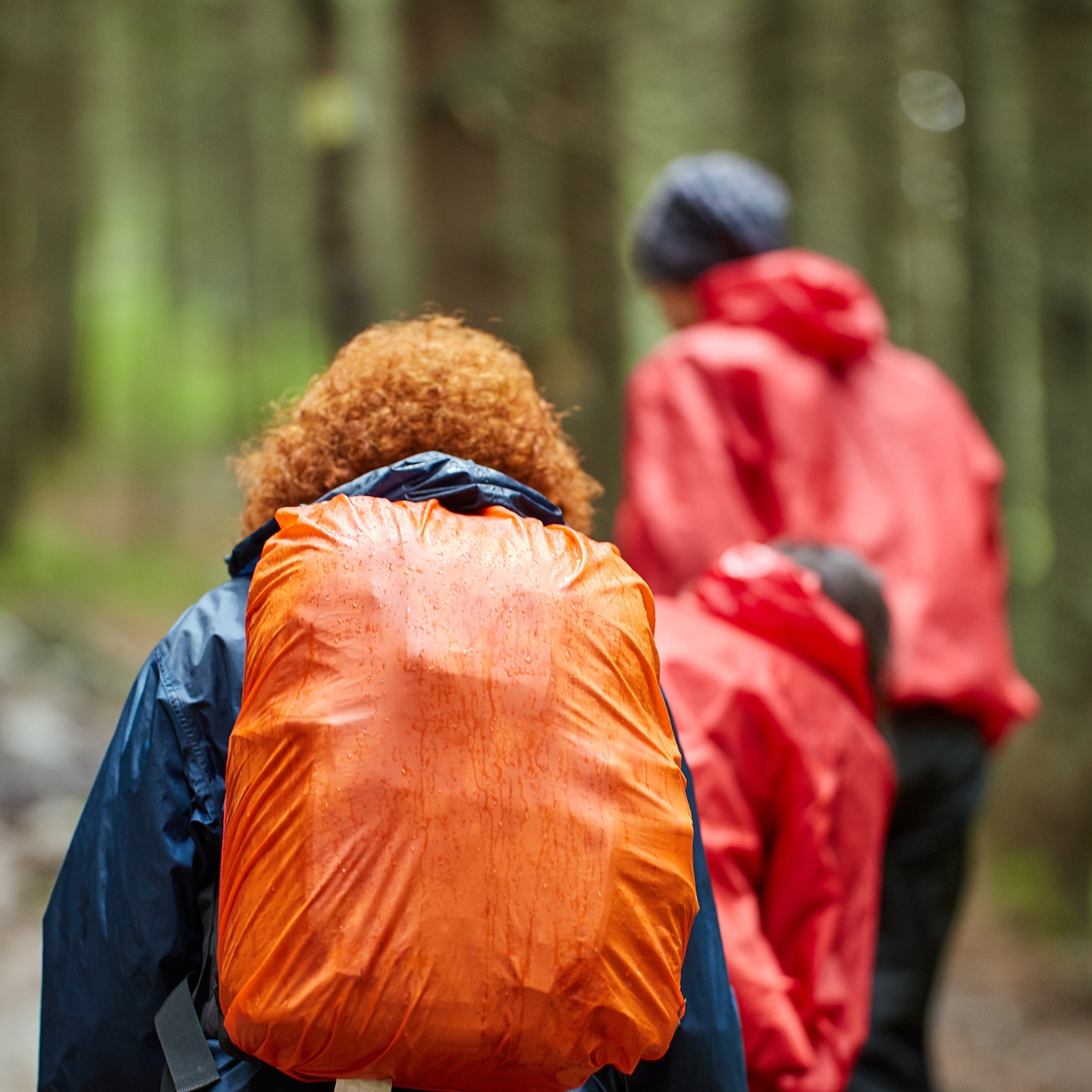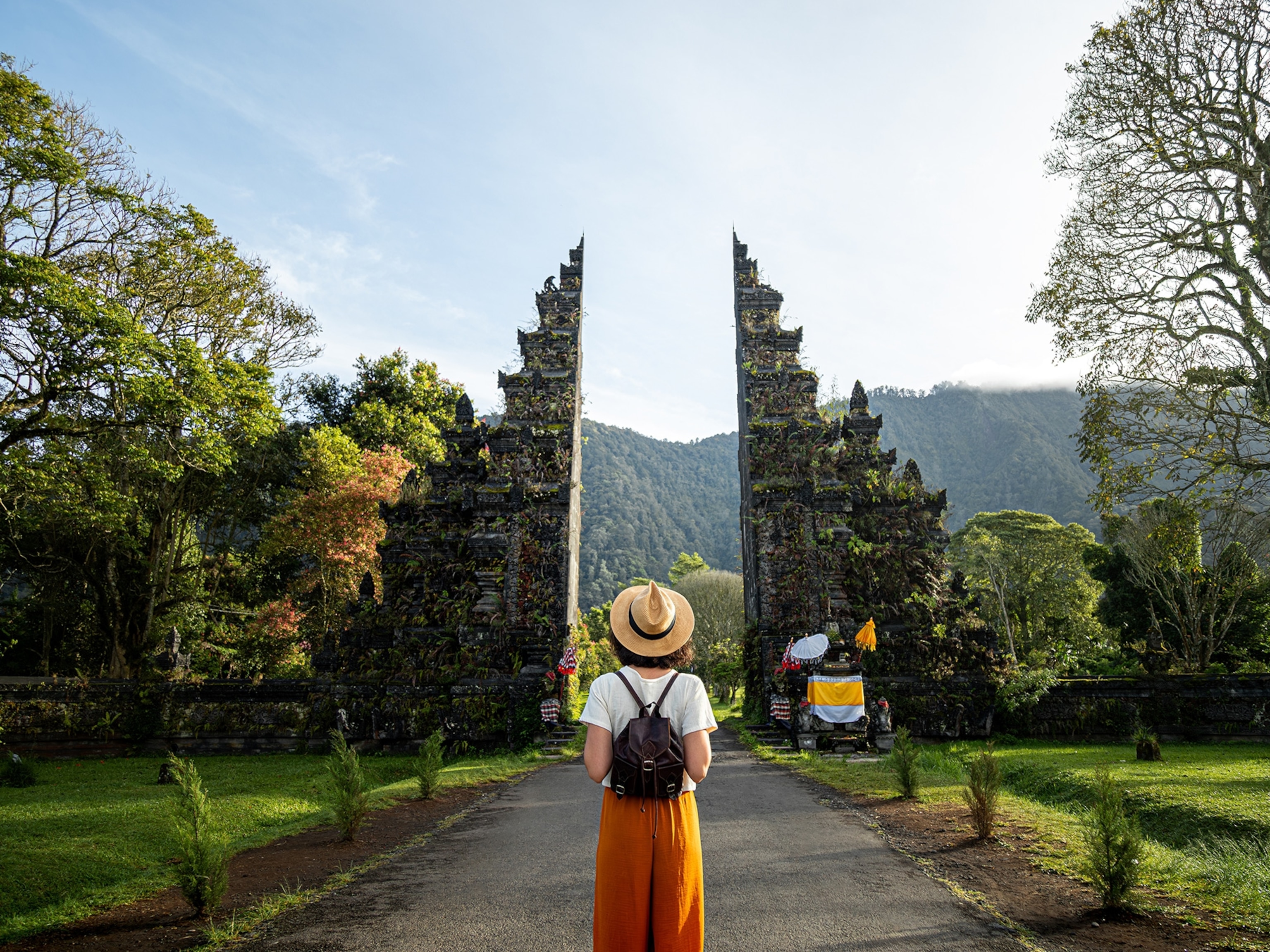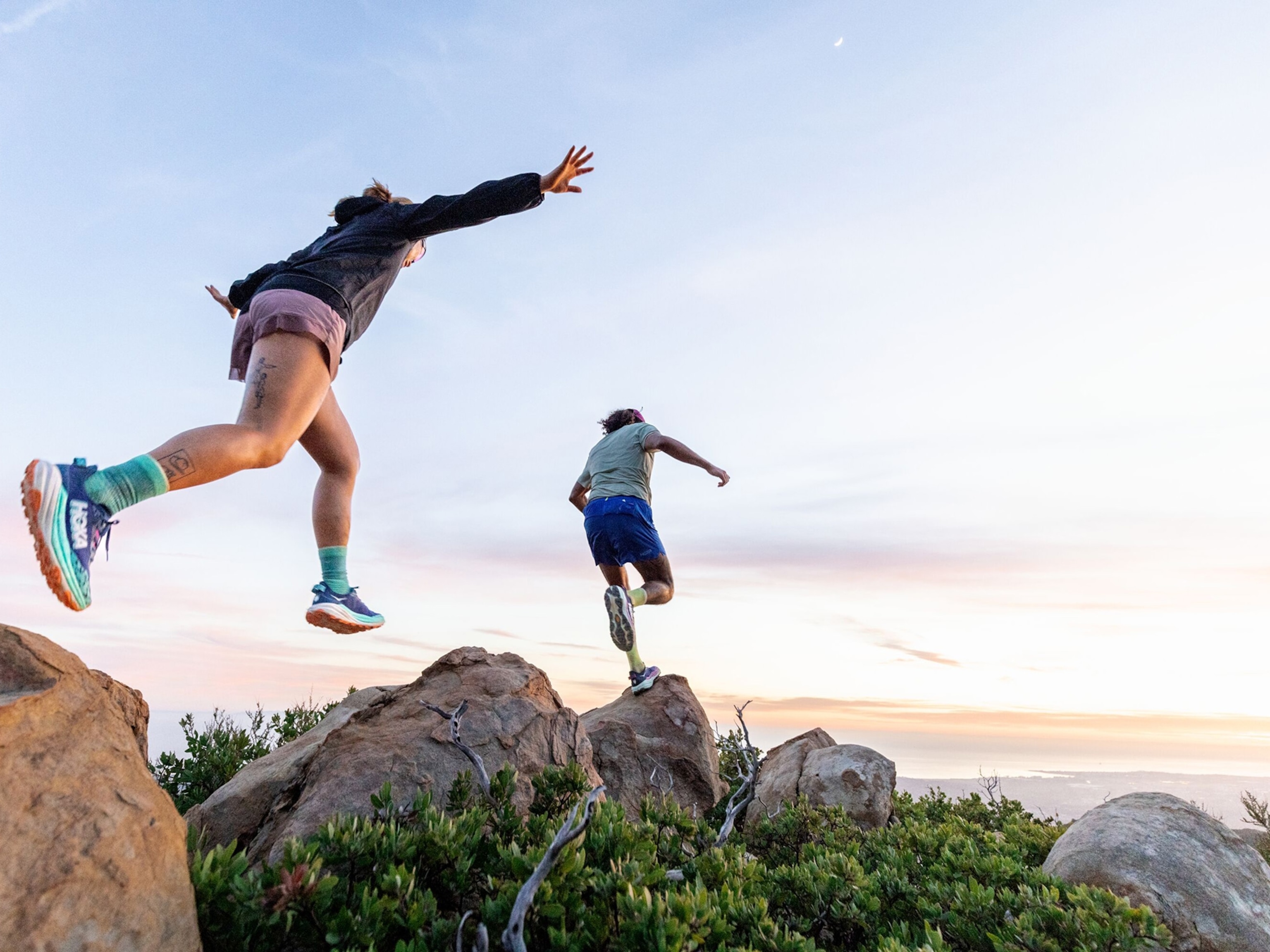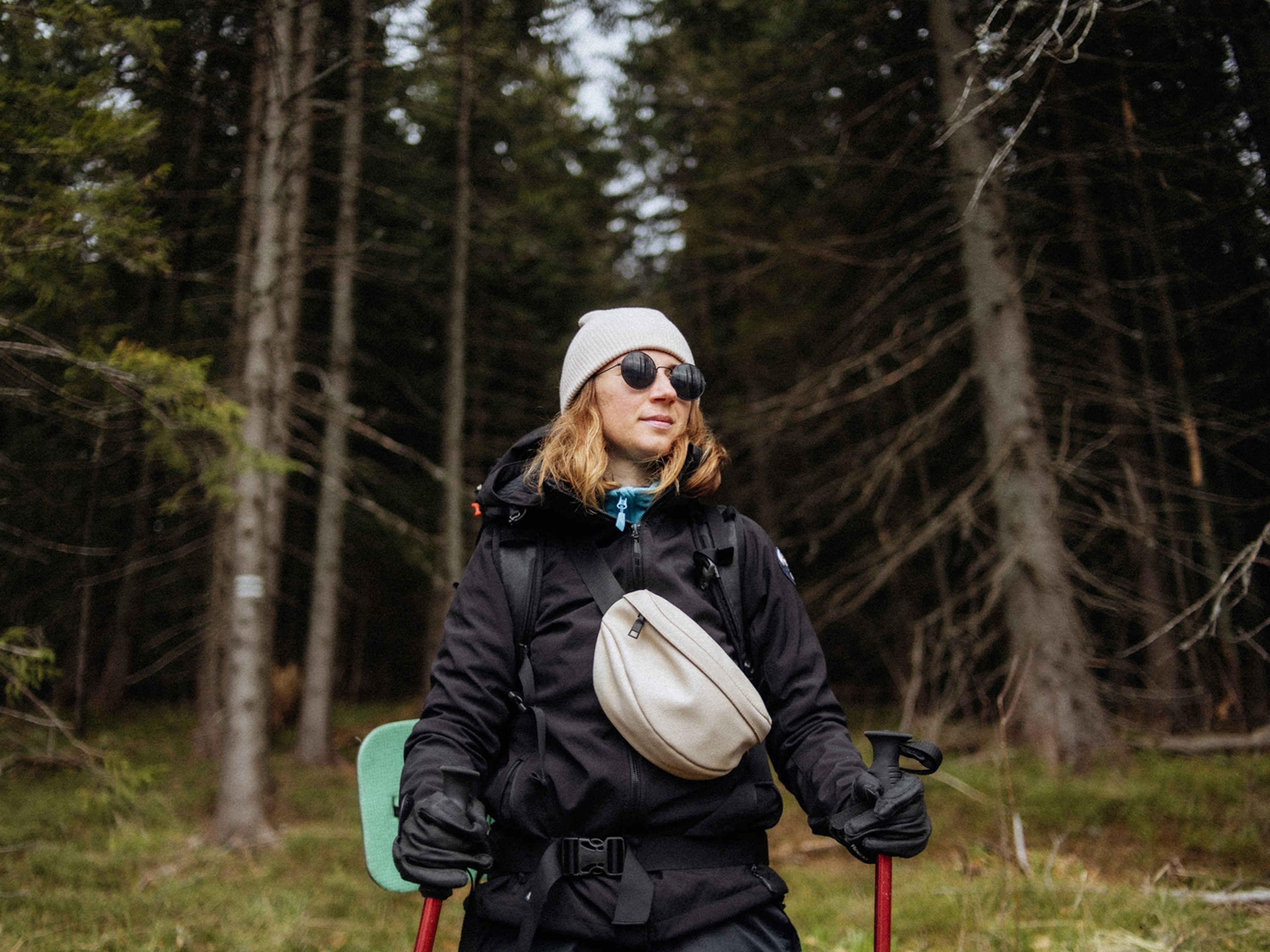I hike 3-4 times a week—these are the daypacks I swear by
From organizational wonders to budget workhorses, these top picks can handle any daylong trek.
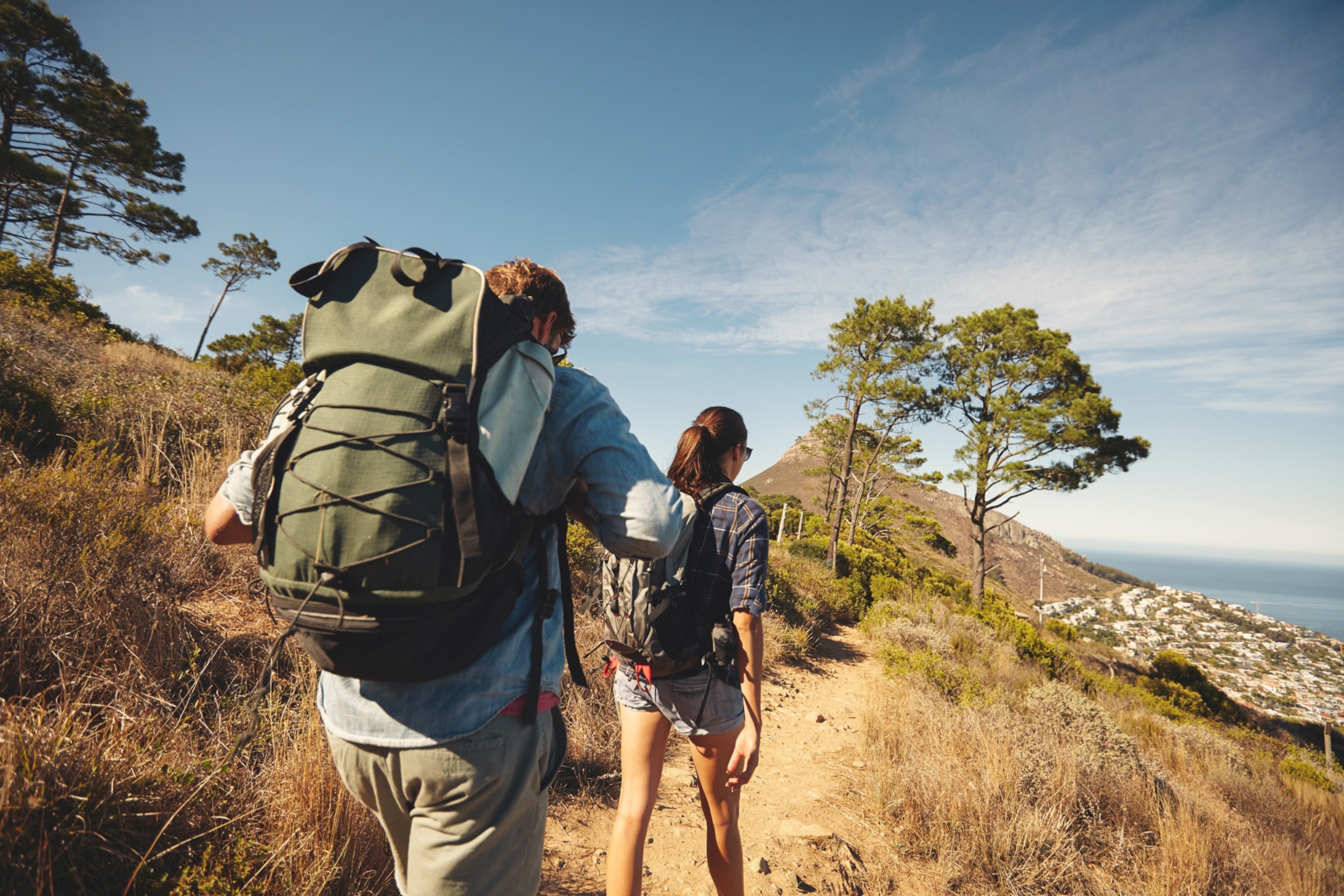
By now, the health benefits of being outside have been well documented. But hiking is particularly good for you, providing a host of advantages for body and mind.
To make the most of any hike, it helps to have a sturdy, roomy daypack. The best hiking daypack maximizes space without being too heavy. It should fit essentials, while evenly distributing weight with comfortable, supportive straps.
That said, it can be difficult to find the right one. As a seasoned hiker, who hits the trails several times a week in Boise, Idaho, I never seem to have the right backpack. They’re either too small, too big, weigh me down, or keep items I need frustratingly just out of reach.
With hikes in Boise’s Sawtooth Mountains and quite a few snowshoeing adventures on my calendar, I tested a selection of highly rated daypacks on nearby trails. I also spoke with Pitt Grewe, who leads public land partnerships at hiking site AllTrails, for his tips on what to look for in a hiking daypack. Here’s what I found.
Our picks for the best daypacks for hiking
• Best budget daypack for hiking: Dakine June Backpack 25L
• Best hydration pack for hiking: Thule AllTrail Daypack 16L
• Best hiking daypack for comfort: Deuter Speed Lite 25
• Best hiking daypack for extra features: Osprey Tempest Velocity 30
• Best front-loading daypack for hiking: Helly Hansen Generator Backpack
The best hiking daypacks
Not every backpack makes a good hiking daypack, says Grewe. Daypacks have a smaller carrying capacity than a multiday backpack. The best hiking daypacks hold essentials without weighing you down, whether you’re on a local ramble or a mountain trek. Here are the details of every daypack I tested.
Best hiking daypack overall: Matador Beast18 Ultralight Technical Backpack
Why we like it: Matador’s Beast18 may have cracked the code of balancing capacity with weight. This backpack weighs just over a pound, yet it can hold as much as 18 liters (hence the name).
Despite its slim profile, it manages to accommodate a large main compartment, two internal pockets, a key loop, gear loops for poles or ice axes, and an external daisy chain for carabiners. You can even squish it down to about nine inches and compress it in the included storage sack for easy carry-on storage.
We love that the side pockets are large enough to hold Nalgene bottles, but you can also use the hydration bladder pocket.
Keep in mind: While the Matador is a great choice for a lightweight daypack, the lightly padded shoulder straps may feel less comfortable compared to other options on this list, such as the Helly Hansen Generator Backpack (see details below). As a result, this daypack is best suited for lighter loads or shorter treks.
Product details: Volume: 18L | Weight: 1 lb., 5 oz. | Material: Nylon
(Here’s all the gear you need to conquer the trails)
Best budget daypack for hiking: Dakine June Backpack 25L
Why we like it: With its good looks, versatility, and large capacity, the $75 Dakine June is a top choice for multitasking hikers. It’s my go-to for short, easy hikes around my house. I even keep it in my car, ready to go with a few essentials for spur-of-the-moment hikes or trail breaks after a day of remote work at my local cafe.
This bag features a large main compartment with a padded laptop sleeve, a removable accessories pouch for smaller items easily lost in the backcountry, an external mesh water bottle pocket, and loops to attach other bags in Dakine’s J-Connection Series. We love that it’s made with recycled materials and comes in tons of funky colors.
Keep in mind: This budget daypack is an excellent option for casual hikes and nature walks but isn’t sturdy enough for extended hikes and backpacking. With no hip belt or sternum straps, loading up this bag with gear could cause you to feel off-balance or lead to back pain.
Product details: Volume: 25L | Weight: 1 lb., 6 oz. | Material: Recycled nylon, recycled polyester
Best hydration pack for hiking: Thule AllTrail Daypack 16L
Why we like it: Hydration is everything when you’re out on the trails. The Thule AllTrail Daypack makes it easy to get enough water with a built-in reservoir and a shoulder strap valve. When you’re not drinking, a magnet helps secure the hose, keeping it from bouncing around and getting tangled.
While hydration is a key selling point, this daypack also offers lots of storage with a large main compartment, an interior zippered mesh pocket, external mesh side pockets, trekking pole attachments, and a nifty external top pocket for essentials. The detachable waist strap offers extra stability to help support all your stuff.
The abundant storage is especially handy during long summer hikes, when I need to pack as much water as possible. It’s also great in the fall, when I bring a portable coffee maker for a pick-me-up on the trail.
Keep in mind: While this daypack offers plenty of storage compared to most hydration packs, the 16-liter size is smaller than others on this list, which may limit the amount of gear you can bring on long hikes or in cold weather.
Product details: Volume: 16L | Weight: 1 lb., 10 oz. | Material: Polyester
(What to wear hiking, from clothing to gear)
Best hiking daypack for comfort: Deuter Speed Lite 25
Why we like it: This daypack has an adjustable sternum belt, ergonomically padded shoulder straps, built-in hip fins, and a back ventilation system—all designed to keep hikers going till the end of the trail.
The Deuter Speel Lite doesn’t sacrifice essential components to reduce weight. Instead, it incorporates helpful design features, such as pocket shoulder straps for easy access to essentials (including one with a zipper for a phone and one for sunglasses), that make the most of the space.
It also has a compartment for storing valuables, an elasticized interior pocket for wet items, pole holders, two side pockets, and a helmet attachment loop. The larger main compartment can hold a three-liter water reservoir.
Keep in mind: This bag has a ton of great features for outdoor activities, but it lacks features necessary for an everyday bag.
Product details: Volume: 25L | Weight: 1.5 lbs. | Material: Polyester
Best hiking daypack for extra features: Osprey Tempest Velocity 30
Why we like it: Inside this stacked pack, hikers find soft flask (500 milliliter) pockets with stabilization loops. There are dedicated pockets for a phone and accessories, compression straps to fit more supplies, and attachments for hiking poles. The stretchy mesh front pocket offers extra space for a helmet or an additional pair of shoes. The emergency whistle on the sternum strap is an appreciated safety precaution. We also like the lower sleeping pad attachment straps, for spending the night under the stars.
Keep in mind: This is one of the most expensive and heaviest hiking daypacks in our roundup. While spacious, it may not be suitable for hikers on a budget or long hikes that require a lighter load.
(These are the best hiking boots for women)
Product details: Volume: 28L | Weight: 2 lbs., 0.4 oz. | Material: Recycled nylon
Best front-loading daypack for hiking: Helly Hansen Generator Backpack
Why we like it: Front-loading backpacks are a great way to stay organized on the trails, while having access to essentials. The Helly Hansen Generator Backpack combines comfort and convenience, with a breathable mesh back panel, shoulder straps, and a waist belt.
This daypack has reflective materials, a sternum strap with a whistle, and a hydration-compatible sleeve with a hanger loop. Thanks to the glove-friendly zippers on the main front-loading section, getting to your things is a cinch when it’s cold outside.
Keep in mind: This daypack may be convenient, but it isn’t as sturdy as other bags, especially when it’s fully loaded. You may feel off-balance. This backpack has a hydration-compatible sleeve but no bladder.
Product details: Volume: 20L | Weight: 1 lb., 9 oz. | Material: Polyester, nylon
(Stay hydrated and be kind to the planet with these top-notch water bottles)
How we chose the best daypacks for hiking
There are tons of hiking backpacks on the market, but I wanted to focus on outdoor brands with a solid reputation, great reviews, and features that day hikers would appreciate.
• Third-party reviews: Before deciding which daypacks to test, I wanted to get a sense of what customers were saying. I started my search on Reddit to see which daypacks were getting the most praise. Once I had my list, I checked product reviews across online sites to make sure I was trying out the best of the best.
• Brand reputation: I dug into each brand to make sure they had a good reputation for quality, materials, sustainability, and customer service. Brands with a focus on outdoor recreation were given priority.
• Weight and size: As Grewe of AllTrails mentioned, a hiking daypack has a smaller capacity than other types of bags for hiking. I looked for bags that were no more than two pounds in weight. I also considered the overall measurements of each bag to ensure they weren’t too bulky and cumbersome.
How to shop for hiking daypacks
Capacity, weight, or both? Whatever you prefer in a daypack, here are a few key features to consider before adding one to your cart.
Ventilation
According to Grewe, daypack materials matter. Most daypacks are built with ventilated back panels and shoulder straps for staying cool and dry on the trails, notes Grewe. “Lightweight and comfort are key for a daypack,” he adds. “Make sure that the material will not bother you if it contacts your skin or through your clothing.” Lightweight nylon tends to be the most ideal material because it’s breathable, in addition to being light.
Features
Day hiking may seem like a simple and straightforward activity, but I find I always need more things than I initially thought. Look for bags with plenty of pockets, compression, loops for attachments, and easy-access storage for extra clothing layers, tools, and water.
Keep in mind that these features may differ, depending on the destination, duration, and activities. If you’re hiking in the snow, go for a bag with enough space for clothing layers, hats, gloves, and jackets. Loops or carabiners for snowshoes or hiking poles are also helpful. If you’re going on long summer hikes, a daypack with a water bladder and extra pockets for bottles will serve you well.
Fit
Short hikes when you’re not carrying much may require only some stability features. One or two stabilizing straps in the sternum or hip area are vital for longer hikes. Some hiking backpacks come in different sizes to accommodate torso length and body weight. If you’re unsure of the fit, try a few daypacks in person.
Capacity
It may seem obvious, but asking yourself how much storage you need is important. Grewe says 10-35 liters is ideal for carrying snacks, extra layers, and a book. A 15-liter pack is suitable for a water reservoir and some snacks.
Activity
It goes without saying that experienced hikers taking on challenging terrain in adverse conditions require a durable bag with special features. For easier, more familiar trails, you’ll likely need just a small daypack with few bells and whistles. “I often hike in bear country, so I carry bear spray with me,” says Grewe, “so having a sleeve where I can quickly access bear spray is critical.”
Frequently asked questions
What is a daypack for hiking?
A hiking daypack is a backpack that’s typically between 10 and 35 liters. They are smaller than backpacking bags and typically weigh under two pounds. Daypacks are typically used on short hikes during the day, as opposed to overnight hiking and backpacking trips.
What should I bring for a day hike?
It’s always a good idea to bring plenty of water, snacks, a first aid kit, layers, and sunscreen. However, what you bring really depends on where you’re hiking, the time of year, and activities. Winter hikers may want snowshoes, poles, and lots of extra layers, while summer hikers may need extra water bottles and a sunhat. If you’re hiking to an alpine lake, you may need sandals, a bathing suit, and a towel. If you’re looking for a forested spot to hang out, you may want bear spray, a book, and a hammock.
What is a good size for a hiking daypack?
A hiking daypack between 15 and 25 liters is a good size. A daypack that weighs two pounds or less is optimal. If you bring lots of gear and supplies on your hikes, a larger daypack may be a better fit.
